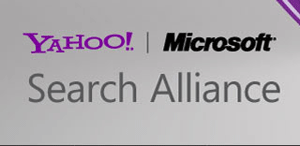Yahoo Completes Global Organic Transition To Bing (Except Korea)
Twenty months later, Yahoo and Bing have announced the completion of the organic (algorithmic) transition from Yahoo powered search results to Bing powered search results globally, with the exception of Korea. If you do a search on any Yahoo powered site via your desktop or mobile device, with the exception from within Korea, the search […]

If you do a search on any Yahoo powered site via your desktop or mobile device, with the exception from within Korea, the search results will be powered by Bing. Why not Korea? Because there is a three-way migration for that between Yahoo, Microsoft and Daum. They expect this transition to be completed by the end of the year.
The first Yahoo portal to be switched over was U.S. and Canada back in August 2010. Since then, many other countries were moved over in batches until now where everything is now moved over to Bing, with the exception of Korea. The ads in the U.S. and Canada and some other countries are powered by Microsoft adCenter but the ads in other countries are still powered by Yahoo’s search ad platform. The completed migration is only talking about the free, algorithmic, also known as organic, search results.
Yahoo’s Kartik Ramakrishnan, VP of Search Engineering, summarized the complexities involved:
- We had to cutover web, image and video search experiences from Yahoo!’s search technology backend to Bing’s algorithmic backend for 40-plus markets, across desktop and mobile devices.
In addition to Yahoo’s owned and operated search experiences, we also had to cut over hundreds of our syndication partners in more than 50 markets, while ensuring a smooth transition for users of our wildly popular Yahoo! Search BOSS service. - Cutting over to the Bing backend was not simply a matter of technical integration through the Bing API. We worked with Microsoft to ensure that Bing’s algorithmic quality in each of these markets was on par or better than Yahoo!’s quality. Wherever we found quality gaps, we worked collaboratively with our counterparts at Bing to provide data driven assessments of quality gaps to help us close the gaps quickly. Only when both teams had established that the quality bar in a market was met, did we green light the cutover.
- A very important design principle was to ensure availability of all key user experience elements of the Yahoo! search experience post-cutover. This meant that we had to perform a comprehensive analysis of product features per market, assess which of those would require support from the Bing platform, and which features Yahoo! would have to continue to develop and invest in.
- Creating a migration path to Bing Webmaster tools for users of Yahoo! Site Explorer, while continuing to support Site Explorer for international users during the transition period proved challenging.
We had to confirm Bing could handle Yahoo’s capacity across multiple global datacenters, including new ones that were brought online to serve the needs of the Search Alliance. The fact that all the cutovers went remarkably smoothly and were essentially non-events from an operational perspective is a testament to the thorough job both teams did. - For all our major markets, we ran comprehensive bucket tests to compare the Yahoo! search experience going against the Yahoo! and Bing backends. We monitored key user experience metrics to ensure that the product experience post cutover would be on par or better for our customers.
We had to put in place support and customer care processes that ensured user concerns and content issues were handled appropriately between our companies, working through policy differences to ensure the right outcome for all stakeholders.
Related Stories:
- Yahoo Asia & More European Properties Transitioned To Bing Powered Results
- Yahoo UK & Others Switching To Bing Organic Results August 3rd
- Yahoo Begins Testing Bing Powered Results This Month
- Yahoo Search Advertisers Can Now Begin To Migrate Accounts To Microsoft adCenter
- Yahoo-Microsoft Organic Transition Happening, Site Explorer, Search Monkey Holding For Now
- What’s New With Bing & Yahoo Search Alliance
- Official: Yahoo’s Results Now Come From Bing
Related stories
New on Search Engine Land